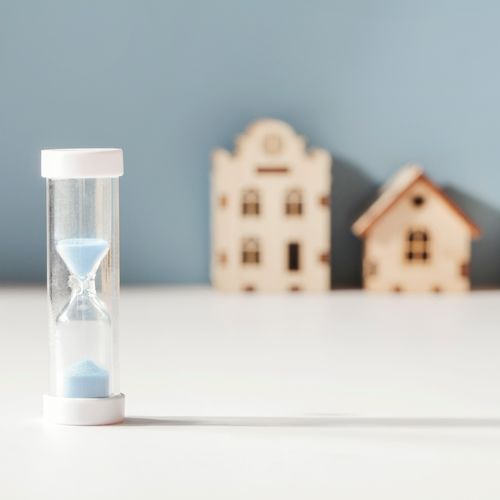Rent-to-own sounds so great! The way it works is that the customer can pay a bit extra each month and get a mortgage after a set amount of time to purchase the home. Unfortunately, it almost never ends up working that way.
What is a Rent-to-Own or Lease-to-Own Home?
Sellers will sometimes agree to rent the home with a special agreement (drafted up by a lawyer) that allows the tenant to purchase the property.
How Does Rent to Own Work?
The seller and buyer will hire an attorney to draft up the agreement. There are a number of points that need to be clarified in the document.
Purchase Price
The renter and seller agree to a purchase price for the home that is due at a future date.
Monthly Rent Payments
This is the first problem with a rent-to-own home. The rent will be inflated because a portion of each rent payment is set aside by the seller as the down payment on the home.
Lease term
The renter and seller agree to the length of time the renter has to purchase the home. It can be in a matter of months or sometimes years!
Home Repairs and Maintenance Some sellers will want the buyer to pay for any repairs or maintenance needed while they are renting the home. This point, like others, can be negotiated.
The Risk of Renting to Own
The reason I talk every one of my customers out of renting to owning is because of the high level of risk that is on the renter/buyer. So many life events can happen that will cost the buyer a small fortune. Plus, the buyer can be set back months or years toward the goal of home ownership.
Buyer Cannot Obtain Financing
This is the number one problem. When you sign the lease-to-own agreement, you will agree on an amount of time that you have to build your down payment and purchase the home. What happens if you get to the end of the agreement and you suddenly cannot get financing? Divorce, medical bills, lost employment and literally hundreds of other events can cause you to not be approved for financing. What happens to the extra money you have been paying toward rent? That will likely go straight into the seller’s pocket.
The Home Suffers Damage
We live in Florida where hurricanes are a very real possibility. Although the lease-to-own agreement will address the possibility of something happening to the home, the buyer still carries the risk. Disputes can occur if the seller’s idea of repairs aren’t in line with the buyers. Who fixes problems? At the end of the term, this could cause a buyer to no longer want the home.
Changes in the Real Estate Market
At the beginning of the lease-to-own agreement, buyer and seller will agree to a purchase price. What if $300,000 is an agreeable price today, but the market shifts and the home is suddenly worth $250,000? Are you, as the buyer, going to still go through with the purchase and buy an overpriced home? If not, you will incur financial damages.
The Buyer Decides She Doesn’t Want to Buy This Home
It happens a lot! If you’re offered a better job in a different town, are you going to turn it down because you’re in a lease-to-own agreement? What if your family grows and this home is no longer ideal? We could make a list of what-ifs and the answer is the same—these events will cause the buyer to not want the home.
What Happens if the Buyer Doesn’t Want the Home?
This is the big question. The renter simply walks away from the home… and her money. Remember those rent payments that are much higher than the going rate because a portion is going to the down payment? Well, if you walk away from the home you’ve walked away from your down payment and given all of that money to the seller.
What Can a Buyer Do Instead of Rent-To-Own?
It is very clear that the cons outweigh the pros on this issue. This is why I will never let a customer of mine enter a rent-to-own agreement. Yes, I get paid by helping them enter that agreement, but I’d rather not have that commission if it means the buyer is taking on undue risk.
What to do Instead of Rent-To-Own
Hire a trusted agent that will not mislead you. You can still buy a home, but do it the right way.
In the rent-to-own process, you’re paying the seller extra rent every month, so why not pay yourself that amount? Find a great home that you’ll enjoy renting and one that is hopefully well below your monthly housing budget. Then, open up a money market account or similar and deposit that extra money into the account. Treat it as untouchable money—that is, if you were paying the seller you wouldn’t be able to get the money back, so why should you touch it if it is in your own account?
Once you have saved up enough money to purchase (usually only 3.5% of the purchase price for a down payment), call us and buy a home the traditional way! In doing so, you do not put your hard-earned money at risk and when the time is right, you’ll be able to purchase the home of your dreams without the excessive risk.
Have a Question? Ask away!
Please leave your questions in the comment box or contact us.



